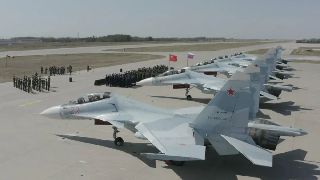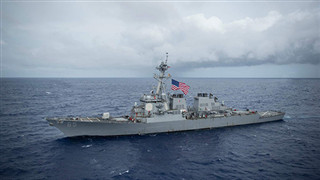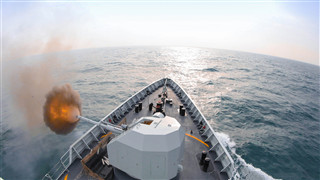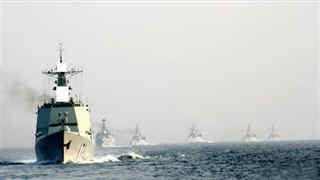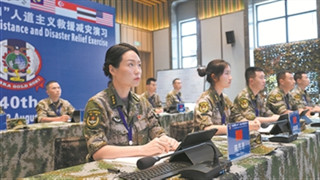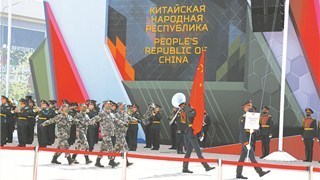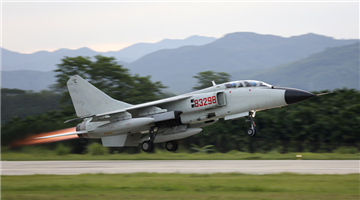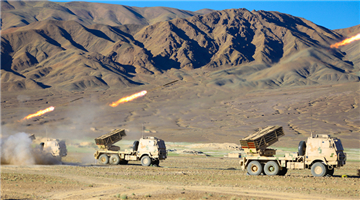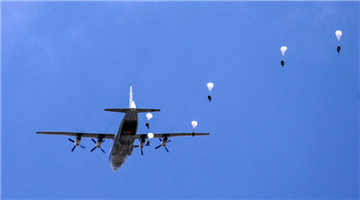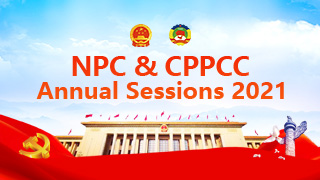TEHRAN, Aug. 5 (Xinhua) -- Iran's newly-elected President Ebrahim Raisi takes the oath before parliament on Thursday, with the new government's domestic and international agendas under spotlight.
Before his official swearing-in, Raisi called for cooperation against U.S. oppression and promotion of relations with neighbors in his meetings with envoys from other countries dispatched to Iran's capital Tehran to attend his inauguration ceremony.
These meetings echoed Raisi's previous remarks. He has set the enhancement of ties with neighboring countries, Asian, Latin American, and non-Western countries as a priority of his foreign policy agenda.
U.S. PRESSURE
"There is no doubt that independent and freedom-seeking countries in the world can develop relations and cooperation to overcome U.S. sanctions and oppressive pressures," Raisi told his Venezuelan guest on Wednesday night, as quoted by the Iranian Presidency's official website.
"Iran and Venezuela have common interests as well as common enemies, and we have always shown that with perseverance and tact we can thwart the conspiracies of the United States and global imperialism," he added.
The United States, Raisi said, "cannot stop independent nations from progressing and excelling."
Referring to the strong will to strengthen bilateral relations to move rapidly towards comprehensive development, Raisi stated, "We are determined to eliminate the problems facing our people by establishing comprehensive relations with friendly and brotherly countries."
Similarly, Raisi stressed the value of cooperation between Iran and Latin American countries as a means to counter the influence of the United States and other "arrogant" powers in a meeting on Tuesday night with Sacha Llorenti, visiting secretary-general of the Bolivarian Alliance for the Peoples of Our America (ALBA).
For his part, Llorenti pointed to the will to defend the independence and sovereignty of nations and stand up to "excessive U.S. demands" as values shared by Iran and the ALBA.
TIES WITH NEIGHBORS
Meanwhile, the new Iranian president on Wednesday said establishing extensive interaction with neighboring countries constitutes one of his government's main foreign policy principles.
He made the remarks in a meeting with Nurdinjon Ismailov, speaker of the Legislative Chamber of Oliy Majlis of Uzbekistan.
"There are countless potentials for the development of relations between the two countries in different fields, especially economy," Raisi said.
Ismailov said that Uzbekistan seeks to develop and strengthen comprehensive relations with Iran, especially in the trade and economic sectors.
During his meeting with Omani Foreign Minister Sayyid Badr Hamad al-Busaidi, Raisi said that Iran aims to develop relations with Oman "in all political, economic, social and cultural fields."
For his part, al-Busaidi congratulated Raisi on his election, saying the "historical and deep-rooted relationship" between Oman and Iran has become "a model between countries in the region."
During another meeting with Mahmadtoir Zokirzoda, chairman of the Assembly of Representatives of Tajikistan, Raisi called for the development of ties between Iran, Tajikistan and Afghanistan as three Persian-speaking countries.
REGIONAL CONFLICTS
In a meeting with Chairman of Pakistan's Senate Sadiq Sanjrani, while hailing relations between Tehran and Islamabad as "beyond the neighborly relationship," Raisi expressed concerns over tensions and insecurity in Afghanistan, and stressed the importance of cooperation between Iran and Pakistan to help establish lasting peace and security in the country.
"The situation of the Afghan people is worrying," Raisi said, emphasizing that the U.S. presence anywhere in the world not only does not resolve problems, but also becomes a problem itself.
"The fate of Afghanistan must be determined peacefully without the interference of outsiders and by the Afghans themselves and through dialogue," he added.
Similarly, referring to the U.S. inability to provide security in Afghanistan, Sanjrani said, "The United States is a major cause of insecurity in various regions."
In his meeting with Syrian Parliament Speaker Hammouda Sabbagh on Wednesday, Raisi said the Syrian people and government have "heroically resisted Western terrorism."
Regarding the reconstruction of Syria, he said "the remaining foreign forces must leave the Syrian territory as soon as possible so that the nation can begin the process of reconstruction powerfully and fast."
Also, Raisi told his guests from Yemen that the future of Yemen must be decided by the Yemenis themselves, adding that "no one outside Yemen can decide for this country."
